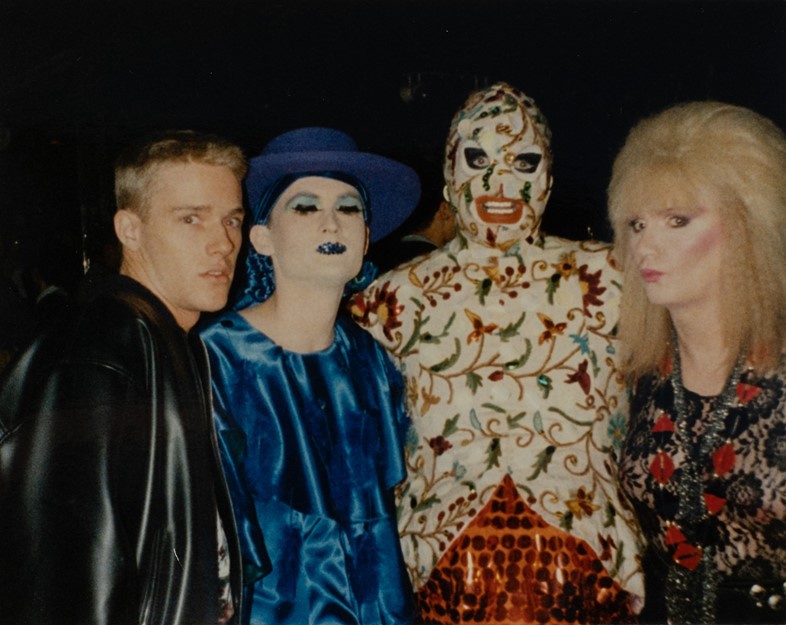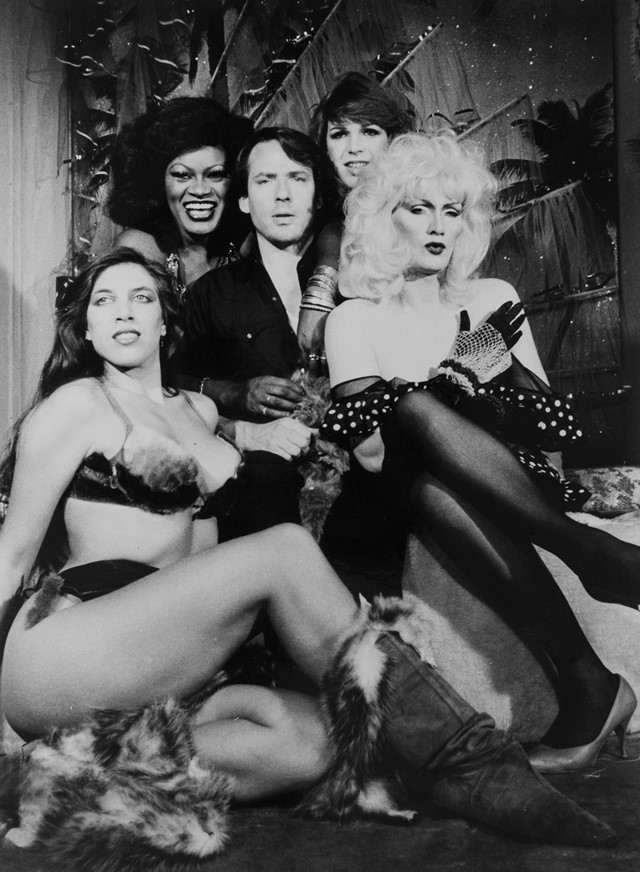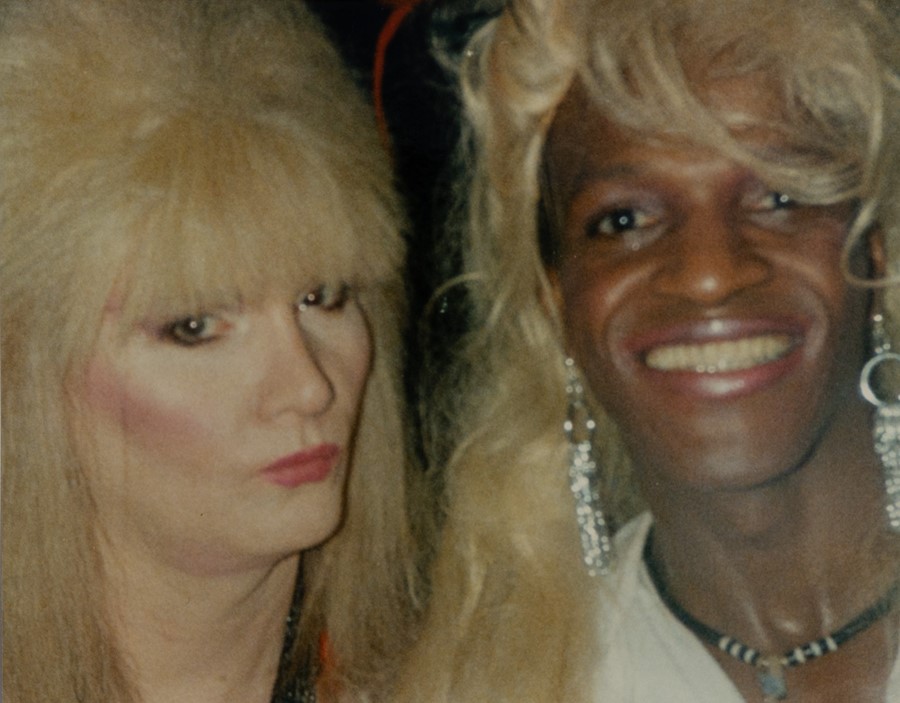As a new and revised edition of her memoir is published, Jayne County opens up to Nick Levine about her life story, Stonewall and reclaiming the word “tr***y”
Jayne County has a life story you couldn’t make up, so we should be grateful she’s poured it into her enthralling memoir Man Enough to Be a Woman. Originally published in 1995, this year’s new and revised edition includes a perceptive introduction from writer-filmmaker Juliet Jacques and a rather wistful epilogue in which County ponders her legacy as rock’s first openly trans singer. Recalling her typically spiky duet with Drag Race star Sharon Needles, 2012’s Hail Satan!, County writes: “That track brought me to the attention of all those kids who thought drag began with RuPaul. It was a shock for them to discover that I’d been doing it all 40, 50 years ago.” Speaking on the phone from her home in rural Georgia, she’s a warm and forthcoming interviewee, but clearly a tough cookie too. “I’m a rebellious person,” County says matter-of-factly. “I’m one of those people who thinks: ’Well, this is me, and if you don’t like it, fuck you.’”
County’s epilogue offers an insight into the relatively quiet life she now lives, painting and looking after her cats, but before we get there the memoir itself is about as quiet as her signature punk banger: If You Don’t Want to Fuck (F***k Off). Working with co-writer Rupert Smith, County canters through her formative years on the outrageous Atlanta drag scene – when she says she was doing it all 50 years ago, she isn’t lying – before she finds her niche in the outré bohemia of late 60s New York. There, she takes part in the Stonewall Riots and shares a cramped 13th Street apartment with Warhol superstars Holly Woodlawn and Jackie Curtis before forming her own super-provocative punk groups, Queen Elizabeth and Wayne County & the Electric Chairs.
Though County was signed for a time to David Bowie’s management company, MainMan, mainstream success always proved elusive. Bowie certainly absorbed some of County’s flair for shock value – Queen Elizabeth’s first gig featured a dildo and a rubber pussy – and even propositioned her after a TV special in 1973. “He stood there waiting for me to do something,” County writes blithely. “[But] he was of no interest to me sexually at all.” After reading the book, it’s difficult not to conclude that the mainstream wasn’t quite ready for County, especially after she changed her stage name to Jayne County in 1979 and fully embraced her identity as a trans woman. Still, she was always able to find an audience (a pre-fame Pete Burns was a regular at her Liverpool gigs) and a chosen family whether she was living in London, Berlin or New York. “I’m a freak magnet,” County says today. “Whatever town or city I’m in, I just draw them in. I’ve always had that knack for finding the right people to hang out with and the club they’re gonna be at.”
In fact, her wild ride only really slowed down in the mid-90s when she returned to Georgia for the sake of her parents, who have since passed away. “I always knew that at some point I would have to go home because my parents were getting old,” she says fatalistically. “But wherever I’ve lived, even temporarily, I’ve managed to make it a home. Put a pretty scarf over a lamp and it changes the whole room – that’s my style of decorating.” Though County has warm southern manners and the accent to match, it would be reductive to pigeonhole her as some kind of cosy elder stateswoman or grand trans matriarch. She’s still too much of an individual for that.

In the book, she challenges conventional wisdom that the Stonewall Riots of 1969 were essentially the bedrock of the modern-day LGBTQ+ rights movement. “Stonewall has become much more than it was in reality – people like to have a starting point, and they like it to fit their particular beliefs and meanings,” County writes. “The truth as I see it is that the Stonewall Riots weren’t as major at the time as they later became. They were part of a widespread culture of protests and revolt.” Today, she says that tracing everything back to Stonewall is really “about building a type of mythology”. She also admits she initially struggled with the “policing of language” in contemporary queer circles, but says she is less bothered by this now.
“When they started coming for the word ‘tr***y’, I was really perplexed because I always used that word in a nice way,” she says. “When I was living in London all those years ago, we had some real trashy weekends at [LGBTQ+ venues] the Golden Lion and the Piano Bar, and that’s what we all used to call each other.” County is definitely sensitive to language’s ability to offend and upset, but suggests that this word could still be reclaimed as a term of empowerment. “Look at the word ‘queer’ – it used to be a real put-down, but now it’s part of queer culture,” she says. “We took over that word and turned it around. So I say: don’t let him steal that word [tr***y] from us and turn it into something nasty.”

These days, County is invariably described as a “pioneer”, “trailblazer” or “legend”, something she shrugs off modestly even though the book features photos of her rubbing shoulders with everyone from Debbie Harry to Marsha P Johnson. “I’m all for shocking people and all that, but I also have a really shy streak in me that’s been there since I was a little kid,” she says. “So I get shy when people use those words because I wasn’t really thinking about that when I was doing it. I was just being me.” Still, she appreciates why her story continues to inspire so many others. “I think Jayne County stands for a rock’n’roll attitude and a different way of looking at things,” she says. “It stands for finding a way to get through life before the ice cracks and making a way for yourself. You know,” she adds with a chuckle, “I’m an old girl now, but I’ve always made a way for myself.”
The new edition of Man Enough to Be a Woman is out now on Serpent’s Tail.






